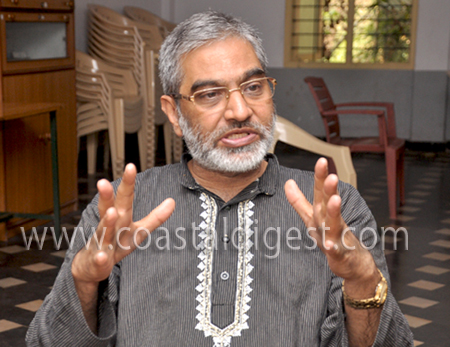
Irfan A. Engineer is the Director of Institute for Peace Studies and Conflict Resolution; Centre for Study of Society and Secularism, Mumbai. Son of Asghar Ali Engineer, internationally known reformist-writer and activist, Mr. Irfan Engineer was a practicing advocate at the Bombay High Court. He is also the Associate Editor of Indian Journal of Secularism.
Q: We talk about minorities being targeted in India but so is the case with minorities in Pakistan and Bangladesh. Do you see a pattern of sorts in the way minorities are treated in various countries?
A: Minorities are discriminated against everywhere in the world. In the US, blacks are targeted. In Pakistan and Bangladesh Hindus and Christians are discriminated against. The world is multicultural. The issue is how minorities are actually handled by the state. Some states are more liberal and some are less liberal. The more liberal ones are the democratic states. Even there, many factors come into play such as the activeness of the civil society, whether they have a strong human rights network and so on. You have countries like Canada. It calls itself a multicultural state wherein it gives rights to people of different cultures, autonomy and space to co-exist. It also teaches multiculturalism in its schools. On the other hand there was the Germany of Hitler who said that all Jews should be eliminated from his land. In South Africa there was racial discrimination although the blacks were in majority and not really a minority. They were oppressed because they were powerless. In Ruwanda, another African country, you find that a minority tribe called ‘Tutsis’ were being ill-treated. A military dictator belonging to the majority tribe called them ‘cockroaches’ and gave orders and even powers to the citizens to kill these Tutsis. So minorities are a target almost everywhere in the world.
Q: How do you see India’s treatment of its minorities?
A: India is a democratic country and I would say its legal system is better than that of the US. However in practice, India too has black spots as far as treatment of minorities is concerned. India was largely feudal in the past. Partition too contributed to some propaganda. All this is still fresh in the minds of the people. There are solidarities with one’s own communities and loyalties to only religion. The Muslim elite migrated to Pakistan and the ones left here were mostly the backward and the working class Muslims. There isn’t a strong civil society from within. The Christians too are a tiny minority in India but they at least have some human rights network and institutions to fight. Generally, it is an accepted norm that a state has to protect its minorities. But the real issue is protecting the minorities while giving them the freedom to maintain their cultural identity.
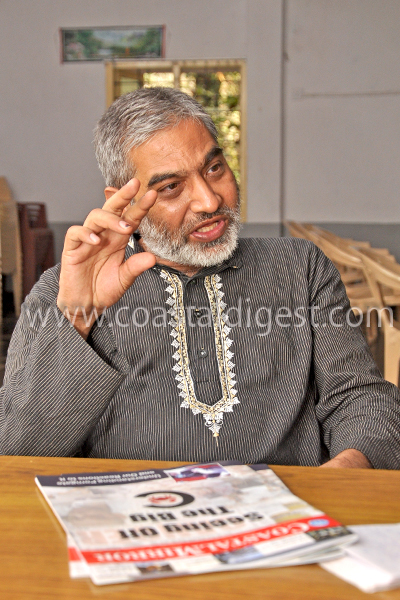
Q: You have spoken about religious nationalism in your public talks and that the Muslim League too was an exponent of this type of nationalism during the freedom struggle. Some political commentators are of the opinion that they too were demanding special status in power circles because they were wary of the fact that post-independence, the Muslims will be cornered and oppressed as a minority. Your thoughts?
A: Yes it started off like that. But gradually they moved off that point of view and Jinnah started deviating from the issues that were being looked at in the beginning which led to the creation of Pakistan. Jinnah’s thinking gradually differed from that of Allama Iqbal who also influenced the Muslim League movement initially. Iqbal wanted a state which had a mixture of Islamic and socialist principles. He was against oppression and believed that the Islamic system of Zakath was a step in that direction.
Q: What about the treatment of minorities in Muslim majority states like Pakistan?
A: In India, although there is ill-treatment of minorities, the laws of the country guarantee rights to the minorities. In Pakistan, the laws are oppressive in nature themselves. Look at the blasphemy law that Pakistan has. Christians live in constant fear. The legal system is faulty. There is a separate electorate and there are hardly any representatives from the minorities in the Assembly there. Compared to Pakistan, Bangladesh is slightly better although minorities suffer there too.
Q: Do you agree that countries that call themselves as ‘Islamic states’ have actually deviated from the teachings of Islam?
A: Definitely. There has been a huge deviation. The Pakistani blasphemy law about abusing Prophet Muhammad (pbuh), for instance. Look at the life of the Prophet (pbuh). An elderly woman would throw garbage on him every day when he would pass by her house. Not a single time did he say a word to her and one fine day when he noticed that no garbage was thrown on him, he enquired about the lady. He was told that she had fallen ill and he went to see her and prayed for her recovery. What blasphemy law are they talking about?
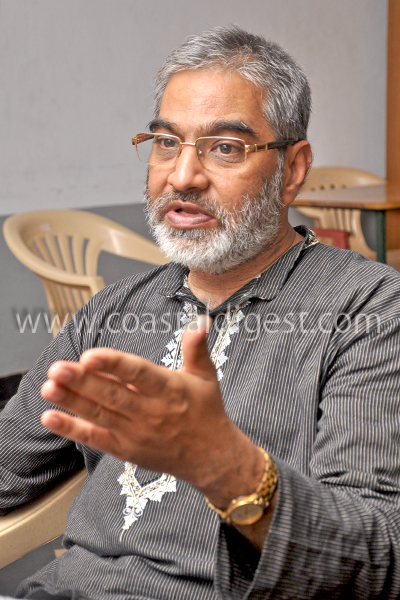
When people, especially Hindus ask me about the treatment of minorities in Arab countries, I say I support the minorities’ cause there. But I also counter question them as to what kind of treatment did our neighbouring Hindu Rashtra (Nepal) mete out to its minorities? I had been to Nepal and I found that minorities in Nepal, especially Dalits, peasants and the working class were being ill-treated. There were minorities who complained about not getting a right to property and so on. No wonder democracy got huge support in Nepal.
Q: Types of minorities differ and so do their problems. What should be done to ensure that their rights are protected?
A: Yes. A minority community in one country will be a majority in another. When Babri Masjid was demolished in India, Hindus in Pakistan and Bangladesh fell prey to violence. If you look at most unrest in the world, you will find that somewhere the minority angle will always be there. Bangladesh itself was carved out because of the conflict of a minority Bengali Muslim population that revolted against Pakistan. Even in the World Wars that took place you will find that ill-treatment of minorities was one of the factors – Hitler’s treatment of the Jews for example.
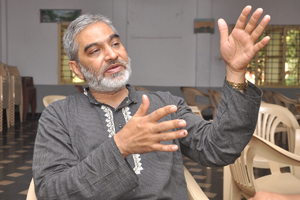
Across the globe, it is generally accepted that minorities have three basic rights. The first being security. The second is the right to produce and reproduce their culture. The third is not to be discriminated against on the basis of language, culture, religion etc. The state has to give special protection and rights for minorities.
Q: Many see reservations as tools that governments can use to help the cause of minorities. What is your take?
A: Reservations are just one of the affirmative actions that the governments can take to uplift minorities. The government can do better things. Even in reservations although people argue that the reservation criteria should be shifted to income-based rather than caste-based, they forget to take into account the social situation. A poor Brahmin cannot be put on the same pedestal as a poor Dalit because of the kind of history and the social capital of their respective communities that exist. I ask people who argue in favour of the income based reservation if a Brahmin family is willing to give their girl to a well-educated and rich Dalit boy in marriage? The backing of their respective communities and so many other factors come into play. Also, when you talk about reservations you must keep in mind that there is a difference in an upper caste urban boy getting 90% marks and a tribal boy getting 70% marks. The tribal boy perhaps knew only his mother tongue which is a local tribal language and then he goes to a government school where he has to pursue education in Kannada and then when he goes for an entrance test he has to face the exams in English. On one hand you have an urban boy being pestered by his mother to have cashew and curds and all the facilities at his disposal and on the other you have this tribal boy struggling his way out and sick of the society telling him that he is useless. So marks are not the only criteria.
But I feel more than reservations, importance has to be given by the government to address their problems as a whole. Make education accessible for the weaker sections and minorities, provide livelihood for the parents of such children, write off their fees… Then there is no problem in everyone competing.
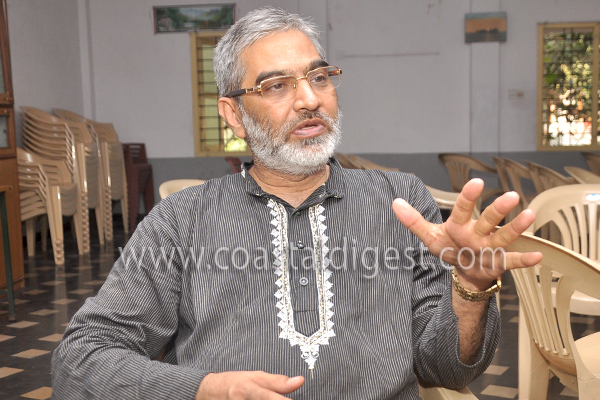
Photos by Savitha B R




Comments
Add new comment